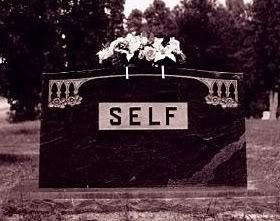Tullian Tchividjian's Blog, page 29
December 31, 2011
This Is The Year?
 Today is the very first day of a brand new year. And for many that means a fresh start.
Today is the very first day of a brand new year. And for many that means a fresh start.
This is the year. It all starts now. We resolve to turn over a new leaf–and this time we're serious. This time we're really going to try, we're not going to quit. We promise ourselves that we're going to quit bad habits and start good ones. We're going to be better husbands, wives, fathers, mothers. We're going to pray more, serve more, give more, and read the Bible more. We're going to finally be all that we can be. No more messing around.
Well…I say try. Seriously, try. You might make some great strides this year. I'm hoping to. There are a lot of improvements I'm hoping to make this year. But don't be surprised a year from now when you realize that you've fallen short…again.
For those who try and try, year after year, again and again, to get better and better, with seemingly less and less success…I have good news for you: you're in good company!
My friend Jean Larroux sent me this powerful illustration that he got from Jack Miller.
Miller recounts the valiant efforts of Samuel Johnson (a literary giant of the 18th century) to fight sloth and to get up early in the morning to pray. Taken from Johnson's diary and prayer journal, Jack gives us a record–through the years–of Johnson's life-long resolutions, failures, and frustrations:
1738: He wrote, "Oh Lord, enable me to redeem the time which I have spent in sloth."
1757: (19 years later) "Oh mighty God, enable me to shake off sloth and redeem the time misspent in idleness and sin by diligent application of the days yet remaining."
1759: (2 years later) "Enable me to shake off idleness and sloth."
1761: "I have resolved until I have resolved that I am afraid to resolve again."
1764: "My indolence since my last reception of the sacrament has sunk into grossest sluggishness. My purpose is from this time to avoid idleness and to rise early."
1764: (5 months later) He resolves to rise early, "not later than 6 if I can."
1765: "I purpose to rise at 8 because, though, I shall not rise early it will be much earlier than I now rise for I often lie until 2."
1769: "I am not yet in a state to form any resolutions. I purpose and hope to rise early in the morning, by 8, and by degrees, at 6."
1775: "When I look back upon resolution of improvement and amendments which have, year after year, been made and broken, why do I yet try to resolve again? I try because reformation is necessary and despair is criminal." He resolves again to rise at 8.
1781: (3 years before his death) "I will not despair, help me, help me, oh my God." He resolves to rise at 8 or sooner to avoid idleness.
I love the never-quit effort of Johnson. What he chronicles sounds so much like me over the years. Try and fail. Fail then try. Try and succeed. Succeed then fail. Two steps forward. One step back. One step forward. Three steps back.
What I'm most deeply grateful for (as was Johnson) is that God's love for me, approval of me, and commitment to me is not dependent on my success and resolve, but on Christ's success and resolve for me. The gospel is the good news announcing Christ's infallible devotion to us in spite of our lack of devotion to him. The gospel is not a command to hang onto Jesus. Rather, it's a promise that no matter how weak and unsuccessful your faith and efforts may be, God is always holding on to you.
It's ironically comforting to me as this new year gets under way that I am weak and He is strong–that while my love for Jesus will continue to fall short, Jesus' love for me will never fall short. For, as Mark Twain said, "Heaven goes by favor. If it went by merit, your dog would get in and you would stay out."
Thank God!
Happy New Year!
December 29, 2011
If You Believe, You Shall Have All Things
Martin Luther concisely expounds on the "two words of God"–showing how the Law of God is intended to bring about desperation, a kind of desperation that only the Gospel of God can deliver us from:
Now, when a man has learned through the commandments to recognize his helplessness and is distressed about how he might satisfy the law–being truly humbled and reduced to nothing in his own eyes–he finds in himself nothing whereby he may be justified and saved. Here the second part of Scripture comes to our aid, namely the promises of God which declare the glory of God, saying, "If you wish to fulfill the law, come believe in Christ in whom grace, righteousness, peace, liberty, and all things are promised to you. If you believe, you shall have all things; if you do not believe, you shall lack all things."
Martin Luther, On Christian Liberty
December 25, 2011
He Came…You're Free
 I hope and pray that today is a day of restful reorientation for those of you who are being crushed under the weight of trying to make it on your own.
I hope and pray that today is a day of restful reorientation for those of you who are being crushed under the weight of trying to make it on your own.
For those who feel the acute pressure of thinking you have to change your spouse if you're going to be happy, you have to be on top of everything if you're going to make it, you have to infallibly protect your kids if they're going to turn out OK, you have to control what others think about you if you're going to feel important, you have to be successful if you're ever going to satisfy the deep desire for human approval and therefore avoid the judgement of worthlessness on your life, and so on and so forth…Christmas is for you.
The Incarnation frees us from what Paul Zahl calls "the law of capability"—the law, he says, "that judges us wanting if we are not capable, if we cannot handle it all, if we are not competent to balance our diverse commitments without a slip." Because of Christmas, we are now endowed with the strength to admit that we can't make it on our own–that we're weak and needy and restless. Since our identity is now anchored in Jesus' strength, our weaknesses don't threaten our sense of worth and significance–our security. We're now free to admit our faults and failures without feeling like our flesh is being ripped off our bones.
The Incarnation of Christ serves as a glorious reminder that God's willingness to clean things up is infinitely bigger than our willingness to mess things up. The arrival of God Himself in the flesh sets us free from the pressure we feel to save ourselves from loneliness and lostness, despair and dejection.
In short, Christmas is God's answer to the slavery of self-salvation.
Whether it's by trying harder or giving up, being good or bad, pursuing wisdom or foolishness, sacrificially giving or selfishly taking, we suffer under the weight of looking to ourselves for life's answer.
 Christmas celebrates the glorious truth that no matter how hard we try, we can't do it. Apart from the Incarnation we are left to our own devices. But Jesus came to liberate us from the pressure of having to fix ourselves, find ourselves, and free ourselves. He came to rescue us from the slavish need to be right, rewarded, regarded, and respected. He came to relieve us of the burden we inherently feel to trust in ourselves in order "to get it done." Because Jesus came to secure for us what we could never secure for ourselves, life ceases to be a tireless effort to establish ourselves, justify ourselves, validate ourselves.
Christmas celebrates the glorious truth that no matter how hard we try, we can't do it. Apart from the Incarnation we are left to our own devices. But Jesus came to liberate us from the pressure of having to fix ourselves, find ourselves, and free ourselves. He came to rescue us from the slavish need to be right, rewarded, regarded, and respected. He came to relieve us of the burden we inherently feel to trust in ourselves in order "to get it done." Because Jesus came to secure for us what we could never secure for ourselves, life ceases to be a tireless effort to establish ourselves, justify ourselves, validate ourselves.
Because of Christmas, we have nothing to prove or protect. We can stop pretending. We can take off our masks and be real. We hold the wining hand. We have nothing to lose.
The liberating power of Christmas frees us from trying to impress people, appease people, measure up for people, or prove ourselves to people. The Incarnation frees us from the burden of trying to control what other people think about us. It frees us from the miserable, unquenchable pursuit to make something of ourselves by using others.
The Incarnation is God's shout: "You're free!"
As Everything, he became nothing so that you–as nothing–could have everything.
Merry Christmas, everyone!
December 21, 2011
What Is True Spirituality?
 "The evangelical orientation is inward and subjective. We are far better at looking inward than we are at looking outward."
"The evangelical orientation is inward and subjective. We are far better at looking inward than we are at looking outward."
Sinclair Ferguson
The word spirituality conjures up all sorts of images and ideas. For non-Religious–or secular–people, spirituality is nothing more than "an inner path enabling a person to discover the essence of his/her being…aspects of life and human experience which go beyond a purely materialist view of the world without necessarily accepting belief in a supernatural reality or divine being." Of course, Christians reject this idea of spirituality. Whatever we Christians believe about spirituality, we assume that it has something to do with intimacy with a personal creator God who exists outside of us and has revealed himself to us.
There is, however, one area in which–it seems–both Christian and secular people agree when it comes to spirituality. Spirituality for both is purely subjective and private.
Whether it's a secular or Christian version, a spiritual person (in the minds of most modern people) is a person who focuses on "the inside of life." Most Christians I talk to think about spirituality exclusively in terms of personal piety, internal devotion, and spiritual formation. The focus is almost entirely on individual, inward renewal and private disciplines: praying, reading the Bible, meditation, spiritual retreat, contemplation, and so on. True spirituality, we conclude, is predominately quiet–focusing on the interior of life.
To be sure, personal disciplines are indispensable aspects of staying tethered to the truth of gospel (you'll shrink without them), empowering and nurturing love for God and others. But it's interesting that when James makes his strong point in 2:14-26 about faith without works being dead, what he describes are not works of subjective "spirituality" but selfless service:
If a brother or sister is poorly clothed and lacking in daily food, and one of you says to them, "Go in peace, be warmed and filled," without giving them the things needed for the body, what good is that? (James 2:15)
As Mike Horton wrote recently, "True spirituality may be personal, but it's not private. It is wildly, unashamedly, thoroughly public."
Similarly, in James 1:27 he writes (the only place in the Bible where the word "religion" is used positively):
Religion that is pure and undefiled before God, the Father, is this: to visit orphans and widows in their affliction, and to keep oneself unstained from the world.
Even in that last phrase "keep oneself unstained from the world", he's not talking about monastic retreat, private meditation, or even personal piety. The contextual implication there involves the need to "wash our hands of worldliness" which, throughout the book of James, is defined as self-absorption-a "my life for me" approach to life in contrast from a "my life for you" approach to life. Worldliness, according to James, is me thinking always about me (see James 4:1-3).
 Therefore, in both James 1:27 and 2:15, he's making it clear that true spirituality actually take us away from ourselves and into the messy lives of other people–it's "down to earth", focusing primarily on the outside of life rather than on the inside of life. It is not simply introverted, but extroverted—it doesn't take me deeper into me; it sends me away from me. Real spirituality is forgetting about yourself, washing your hands of you.
Therefore, in both James 1:27 and 2:15, he's making it clear that true spirituality actually take us away from ourselves and into the messy lives of other people–it's "down to earth", focusing primarily on the outside of life rather than on the inside of life. It is not simply introverted, but extroverted—it doesn't take me deeper into me; it sends me away from me. Real spirituality is forgetting about yourself, washing your hands of you.
One serious consequence of concluding that true spirituality is exclusively introspective–that it's all about internal betterment–is that we fail to see the needs of our neighbor and serve them, which is James' definition of "good works." After all, as Martin Luther said, "God doesn't need our good works, but our neighbor does."
As I mentioned in a post last week, the biggest difference between the practical effect of sin and the practical effect of the gospel is that sin turns us inward (homo incurvatus in se) and the gospel turns us upward and outward. We were designed to embrace God and others, but instead we are now consumed with ourselves. The gospel causes us to look up to Christ and what he did, out to our neighbor and what they need, not in to ourselves and how we're doing.
The beautiful irony, of course, is that you and I are renewed inwardly to the degree that we focus not on inward renewal but upward worship and outward service.
Excerpt from Jesus + Nothing = Everything
December 16, 2011
Does Grace Produce Disobedience?
 There seems to be a fear out there that the preaching of grace produces serial killers. Or, to put it in more theological terms, too much emphasis on the indicatives of the gospel leads to antinomianism (a heretical version of Christianity that believes there is no place for God's law in the life of a Christian). My problem with this fear is that I've never actually met anyone who has been truly gripped by God's amazing grace in the gospel who then doesn't care about obeying him. When our hearts are genuinely grasped by God's unconditional love, the last thing we want to ask is, "What can I get away with?" Those who conclude, "Goody, I can now continue in sin til my heart's content" prove that they don't get grace. As I've said before: antinomianism happens not when we think too much of grace. Just the opposite, actually. Antinomianism happens when we think too little of grace.
There seems to be a fear out there that the preaching of grace produces serial killers. Or, to put it in more theological terms, too much emphasis on the indicatives of the gospel leads to antinomianism (a heretical version of Christianity that believes there is no place for God's law in the life of a Christian). My problem with this fear is that I've never actually met anyone who has been truly gripped by God's amazing grace in the gospel who then doesn't care about obeying him. When our hearts are genuinely grasped by God's unconditional love, the last thing we want to ask is, "What can I get away with?" Those who conclude, "Goody, I can now continue in sin til my heart's content" prove that they don't get grace. As I've said before: antinomianism happens not when we think too much of grace. Just the opposite, actually. Antinomianism happens when we think too little of grace.
Wondering whether this common fear is valid, my dear friend Elyse Fitzpatrick (in C.S. Lewis fashion) writes an open letter to Mr. Grace-Loving Antinomian-a person she's heard about for years but never met-asking him to please step forward and identify himself.
I posted this a while back but I just read it again myself and want to share it with those who may not have seen it the first time. It's that good.
Enjoy…
Dear Mr. Antinomian,
Forgive me for writing to you in such an open forum but I've been trying to meet you for years and we just never seem to connect. While it's true that I live in a little corner of the States and while it's true that I am, well, a woman, I did assume that I would meet you at some point in my decades old counseling practice. But alas, neither you nor any of your (must be) thousands of brothers and sisters have ever shown up for my help…So again, please do pardon my writing in such a public manner but, you see, I've got a few things to say to you and I think it's time I got them off my chest.
I wonder if you know how hard you're making it for those of us who love to brag about the gospel. You say that you love the gospel and grace too, but I wonder how that can be possible since it's been continuously reported to me that you live like such a slug. I've even heard that you are lazy and don't work at obeying God at all…Rather you sit around munching on cigars and Twinkies, brewing beer and watching porn on your computer. Mr. A, really! Can this be true?
So many of my friends and acquaintances are simply up in arms about the way you act and they tell me it's because you talk too much about grace. They suggest (and I'm almost tempted to agree) that what you need is more and more rules to live by. In fact, I'm very tempted to tell you that you need to get up off your lazy chair, pour your beer down the drain, turn off your computer and get about the business of the Kingdom.
I admit that I'm absolutely flummoxed, though, which is why I'm writing as I am. You puzzle me. How can you think about all that Christ has done for you, about your Father's steadfast, immeasurable, extravagantly generous love and still live the way you do? Have you never considered the incarnation, about the Son leaving ineffable light to be consigned first to the darkness of Mary's womb and then the darkness of this world? Have you never considered how He labored day-after-day in His home, obeying His parents, loving His brothers and sisters so that you could be counted righteous in the sight of His Father? Have you forgotten the bloody disgrace of the cross you deserve? Don't you know that in the resurrection He demolished sin's power over you? Aren't you moved to loving action knowing that He's now your ascended Lord Who prays for you and daily bears you on His heart? Has your heart of stone never been warmed and transformed by the Spirit? Does this grace really not impel zealous obedience? Hello…Are you there?
Honestly, even though my friends talk about you as though you were just everywhere in every church, always talking about justification but living like the devil, frankly I wonder if you even exist. I suppose you must because everyone is so afraid that talking about grace will produce more of you. So that's why I'm writing: Will you please come forward? Will you please stand up in front of all of us and tell us that your heart has been captivated so deeply by grace that it makes you want to watch the Playboy channel?
Again, please do forgive me for calling you out like this. I really would like to meet you. I am,
Trusting in Grace Alone,
Elyse
December 13, 2011
Falling Upward
In his book Theology is for Proclamation, Gerhard Forde writes about the fall of mankind:
Adam and Eve fell into sin. The fall is really not what the word implies at all. It is not a downward plunge to some lower level in the great chain of being, some lower rung on the ladder of morality and freedom. Rather it is an upward rebellion , an invasion of the realm of things "above," the usurping of divine prerogative. To retain traditional language, one would have to resort to an oxymoron and speak of an "upward fall." This, after all, is precisely what the temptation by the serpent in the garden implies: "You will not die… you will be like God, knowing good and evil" (Genesis 3:4-5). A line had been drawn over which Adam and Eve were not to step. They were not to eat of the tree of knowledge of good and evil. There was a realm "above" which they were to leave to God; if they did not, their death would result. But the tempter insinuated, "Don't believe it for an instant! God is only jealous of the divine preserve! God knows that if you step over the line you will not die but become gods. You have something going for you! You have divine qualities, you have an immortal soul." So the step is taken. It is rebellion, an upward fall.
The first Adam ventured up into the "realm of things above" and brought death. The second Adam ventured down into the "realm of things below" and brought life.
The temptation for Christian's is to think that once God saves us we move beyond the First Adamic impulse to fall upward. The truth is, however, that even after God saves us we continue to fall upward–trying to claim for ourselves (in such subtle ways) the glory that belongs to God alone; trying to secure for ourselves the rescue that God alone can provide. "The essence of sin is man substituting himself for God, while the essence of salvation is God substituting himself for man. Man asserts himself against God and puts himself where only God deserves to be; God sacrifices himself for man and puts himself where only man deserves to be." (Stott)
December 9, 2011
The LIBERATE Conference
As encouraging as it is to see a growing interest in the now-power of the gospel, I still find that there is fear, reservation, skepticism, and nervousness regarding the radicality of the gospel and the hilarious freedom that comes with it. Even those of us who have experienced the unconditional, saving grace of God find it intuitively difficult not to put conditions on grace- "don't take it too far; keep it balanced", we say.
I wholeheartedly believe that the gospel of grace is way more drastic, way more offensive, way more liberating, way more shocking, and way more counterintuitive than any of us realize. There is nothing more radically unbalanced and drastically unsafe than grace. It has no "but": it's unconditional, uncontrollable, unpredictable, and undomesticated. It unsettles everything. There is a dangerous depth to the gospel that needs to be rediscovered and embraced…and that's what the LIBERATE Conference is all about.
Beginning February 23-25, 2012 at Coral Ridge Presbyterian Church in Ft. Lauderdale, Florida (and every year thereafter) the LIBERATE Conference will explore the depths and riches of God's scandalous grace in the gospel. We want it to become a catalytic platform for serious thinking about "a more radical gospel."
So, to help kick off our first annual LIBERATE Conference, I've asked some of my friends to join me-a group of unafraid gospel-addicts, steel-spined soldiers of grace: Michael Horton, Paul Tripp, Elyse Fitzpatrick, Scotty Smith, Darrin Patrick, David Zahl, Rod Rosenbladt, and Doug Sauder. Scott Anderson (Executive Director of Desiring God) will be emceeing and Mark Miller (Director of Music at Coral Ridge Presbyterian Church) will be leading us in music.
Whoever you are, we want you here. We've intentionally made it as affordable as we can so that finances won't be an obstacle. We don't want anything getting in the way of you being able to come. Plus, there's no place warmer and sunnier during February than Fort Lauderdale!
So, bring your family. Bring your church leaders. Bring your friends. Bring your pastor. It promises to be a time of real refreshing, a genuine grace-fest.
Register here today.
December 5, 2011
The Gift Of Self-Forgetfulness
 "Many pulpits across the land consistently preach the Christian and not the Christ." Todd Wilken
"Many pulpits across the land consistently preach the Christian and not the Christ." Todd Wilken
As I said in Ed Stetzer's interview of me a couple weeks ago, the way many of us think about sanctification is, well…not very sanctified. In fact, it's terribly narcissistic. We spend too much time thinking about how we're doing, if we're growing, whether we're doing it right or not. We spend too much time pondering our spiritual failures and brooding over our spiritual successes. Somewhere along the way we've come to believe that the focus of the Christian faith is the life of the Christian.
Reflecting this common assumption, someone who was frustrated with something I had written said to me not long ago, "Don't you know that the focus of the New Testament is the personal holiness of the Christian?" What? Seriously? I heard Mr. Miyagi's voice in my head, "Breathe in, breathe out; breathe in, breathe out." The truth is, we spend way too much time thinking about ourselves, and we justify this spiritualized navel-gazing by reasoning that this is what God wants us to be doing.
I've said this before but let me say it again: there is nothing in the gospel or about the gospel that encourages me to focus on me. Nothing! It's never honoring to God when we take our eyes off of Christ "the author and finisher of our faith" and center our eyes on ourselves. Never! In fact, the whole point of the gospel is to get us out of ourselves and to "fix our eyes on Christ" (Hebrews 12:2). The truest measure of Christian growth, therefore, is when we stop spiritually rationalizing the reasons why we're taking our eyes off of Jesus to focus on ourselves.
The biggest difference between the practical effect of sin and the practical effect of the gospel is that sin turns us inward and the gospel turns us outward. Martin Luther picked up on this problem in the Reformation, arguing that sin actually bends or curves us in on ourselves (homo incurvatus in se). Any version of "the gospel", therefore, that encourages you to think about yourself is detrimental to your faith-whether it's your failures or your successes; your good works or your bad works; your strengths or your weaknesses; your obedience or your disobedience.
 Ironically, what I've discovered is that the more I focus on my need to get better the worse I actually get–I become neurotic and self-absorbed. Preoccupation with my performance over Christ's performance for me actually hinders my growth because it makes me increasingly self-centered and morbidly introspective–the exact opposite of how the Bible describes what it means to be sanctified. Sanctification is forgetting about yourself. "He must increase but I must decrease" (John 3:30) properly describes the painful sanctification process. "Decreasing" is impossible for the one who keeps thinking about himself. In Mere Christianity, C.S. Lewis reminded us that we'll know a truly humble man when we meet him because "He will not be thinking about humility: he will not, in fact, be thinking about himself at all." When we spend more time thinking about ourselves and how we're doing then we do about Jesus and what he's done, we shrink. As J.C. Kromsigt said, "The good seed cannot flourish when it is repeatedly dug up for the purpose of examining its growth."
Ironically, what I've discovered is that the more I focus on my need to get better the worse I actually get–I become neurotic and self-absorbed. Preoccupation with my performance over Christ's performance for me actually hinders my growth because it makes me increasingly self-centered and morbidly introspective–the exact opposite of how the Bible describes what it means to be sanctified. Sanctification is forgetting about yourself. "He must increase but I must decrease" (John 3:30) properly describes the painful sanctification process. "Decreasing" is impossible for the one who keeps thinking about himself. In Mere Christianity, C.S. Lewis reminded us that we'll know a truly humble man when we meet him because "He will not be thinking about humility: he will not, in fact, be thinking about himself at all." When we spend more time thinking about ourselves and how we're doing then we do about Jesus and what he's done, we shrink. As J.C. Kromsigt said, "The good seed cannot flourish when it is repeatedly dug up for the purpose of examining its growth."
But what about those passages which seem to encourage us to "examine ourselves"? Isn't there a proper time and place for self-evaluation?
Yes.
In fact, this is what the law of God (not the gospel of God) does. The law forces us to look inside ourselves so we can clearly see that what we need most has happened outside ourselves. This is what Paul means in 2 Corinthians 13:5 when he says, "Examine yourselves, to see whether you are in the faith. Test yourselves. Or do you not realize that Jesus Christ is in you?" In other words, the goal of self-examination is not to discover my worthiness, strength, or sufficiency. The goal is to discover my unworthiness and Christ's worthiness; my weakness and Christ's strength; my deficiency and Christ's sufficiency. Confidence in my transformation is not the source of my assurance and growth. Confidence in Christ's substitution is. As Matt Richard has rightly noted, "Looking to self for assurance shifts the foundation from Jesus to us." Christian growth is defined in the Bible as movement in the exact opposite direction (how do we keep missing this obvious point ??). By his Spirit, Christ's continuing subjective work inside me consists of him driving me back constantly to his completed objective work outside me (John 15:26). "True faith", said Sinclair Ferguson, "gets a man out of himself and into Christ."
Oswald Bayer makes the great point that, far from being a "deadening of self", forgetting yourself leads to life and freedom:
Those who are born anew are no longer entangled with themselves. They are solidly freed from this entanglement, from the self-reflection that always seeks what belongs to itself. This is not a deadening of self. It does not flee from thought and responsibility. No, it is the gift of self-forgetfulness. The passive righteousness of faith tells us: You do not concern yourself at all! In that God does what is decisive in us, we may live outside ourselves and solely in him. Thus, we are hidden from ourselves, and removed from the judgment of others or the judgment of ourselves about ourselves as a final judgment. "Who am I?" Such self-reflection never finds peace in itself.
 Contrary to what we have typically heard (and been enslaved by), Christian growth is not becoming stronger and stronger, more and more competent. Christian growth and progress is marked by a growing realization of just how weak and incompetent we are and how strong and competent Jesus continues to be for us. Spiritual maturity is not marked by our growing, independent fitness. Rather, it's marked by our growing dependence on Christ's fitness for us. Remember, the Apostle Paul (who was more spiritually mature and "sanctified" than all of us put together) referred to himself as the "least of all the saints" (Eph. 3:8) and the "chief of sinners" (1 Tim. 1:15) at the end of his life. For Paul, spiritual growth is realizing how utterly dependent we are on Christ's cross and mercy. It's not arriving at some point where we need Jesus less because we're getting better and better. It was, paradoxically, Paul's ability to freely admit his lack of sanctification which demonstrated just how sanctified he was.
Contrary to what we have typically heard (and been enslaved by), Christian growth is not becoming stronger and stronger, more and more competent. Christian growth and progress is marked by a growing realization of just how weak and incompetent we are and how strong and competent Jesus continues to be for us. Spiritual maturity is not marked by our growing, independent fitness. Rather, it's marked by our growing dependence on Christ's fitness for us. Remember, the Apostle Paul (who was more spiritually mature and "sanctified" than all of us put together) referred to himself as the "least of all the saints" (Eph. 3:8) and the "chief of sinners" (1 Tim. 1:15) at the end of his life. For Paul, spiritual growth is realizing how utterly dependent we are on Christ's cross and mercy. It's not arriving at some point where we need Jesus less because we're getting better and better. It was, paradoxically, Paul's ability to freely admit his lack of sanctification which demonstrated just how sanctified he was.
This is the point: When we stop narcissistically focusing on our need to get better, that is what it means to get better. When we stop obsessing over our need to improve, that is what it means to improve!
Thankfully, the focus of the Bible is not the work of the redeemed but the work of the Redeemer. The gospel frees us from ourselves. It announces that this whole thing is about Jesus and dependent on Jesus. The good news is the announcement of his victory for us, not our "victorious Christian life." The gospel declares that God's final word over Christian's has already been spoken: "Paid in full." Therefore, Christians can now live in a posture of perpetual confidence "that there is now no condemnation for those who are in Christ Jesus" (Rom. 8:1).
I love the story of the old pastor who, on his deathbed, told his wife that he was certain he was going to heaven because he couldn't remember one truly good work he had ever done.
He got it.
Blessed self-forgetfulness!
November 30, 2011
Are You Righteous?
"For our sake he made him to be sin who knew no sin, so that in him we might become the righteousness of God."
2 Corinthians 5:21
 Ethical behaviorism is a term Psychologists use which defines righteousness exclusively in terms of what a person does or does not do. In this sense, a righteous person is one who does the right things and avoids the wrong things. An unrighteous person is one who does the wrong things and avoids the right things. Defined this way, righteousness is a quality that can be judged by an observation of someone's behavior. Virtue and uprightness is purely a matter of outer conduct without any hint of what goes on inside you.
Ethical behaviorism is a term Psychologists use which defines righteousness exclusively in terms of what a person does or does not do. In this sense, a righteous person is one who does the right things and avoids the wrong things. An unrighteous person is one who does the wrong things and avoids the right things. Defined this way, righteousness is a quality that can be judged by an observation of someone's behavior. Virtue and uprightness is purely a matter of outer conduct without any hint of what goes on inside you.
William Hordern illustrates well how this definition of righteousness is the definition held by the world:
The law enforcement institutions of society are concerned with right behavior. They do not care why people obey the law, so long as they obey it. The person who breaks no laws is righteous in their sight regardless of the motivation that produces law abiding behavior.
In the Sermon on the Mount, Jesus breaks radically from this definition of righteousness. He cuts through the outer behavior of a person and looks at what's in the heart. Jesus insists that righteousness is not simply a matter of what we do or don't do but rather a question of why we do or don't do it.
A few years ago when my boys were younger, they would gather all the neighborhood kids in our yard to play football. And every once in a while a pass would be overthrown, landing in my neighbors grass. My neighbor (an angry, grumpy, old curmudgeon) would always come outside and scream at my boys and their friends, threatening to confiscate the ball if it happened again. My boys, being young at the time, would always come inside with tears in their eyes, lips quivering, because they were scared of our neighbor. Well, being the scrapper that I am, there were countless times that I wanted to march over to my neighbor and give him a piece of my mind. I wanted to make it clear that if he ever yelled at my boys again…well, you get the idea. I never did, though. I would stare him down from time to time, but I never went next door to let him have it. Some would assume that my refusal to let loose on my neighbor was an act of righteousness: I was exercising love, patience, self-control. But was it?
Only God and I (and now you!) know the real reason I never went off on my mean neighbor: the potential risk to me was too high. I didn't want to get in trouble, I didn't want him calling the police, I didn't want him filing a complaint against me to our neighborhood association, I didn't want him gossiping about me so that people in the neighborhood would think less of me. After all, everyone knows I'm a pastor and I didn't want to tarnish my image. And on, and on, and on. In other words, the very thing that may have on the surface seemed righteous was motivated by something terribly unrighteous: selfishness.
So the apparent "righteousness" of my deed was destroyed by the motivation that inspired it. It wasn't as "righteous" as it seemed, to say the least.
Hordern goes on, spelling this out very clearly:
Before an act of murder or adultery is committed there has first been the motivations of the person involved. In his or her heart there has been a murderous anger or an adulterous lust. What Jesus says in the Sermon on the Mount is that many people may have the same motivations in their hearts without ever carrying out the external actions. There may be many reasons for not acting upon our motivations, but obviously one of the most common reasons is a fear of the consequences. The laws of all societies make it perilous to commit murder and laws or social pressures of all societies make it costly to commit adultery. Therefore when a person refrains from such actions it may not be because their heart is pure but simply a matter of self-protection. Jesus is saying that where the motivation for not acting on one's desire is selfish, that person is as unrighteous in God's eyes as the person who actually commits the crime.
The reason this is so important is because many Christians think God cares only that we obey. In fact, many believe that it is even more honorable–and therefore more righteous–when we obey God against all desire to obey him. Where did we get the idea that if we do what God tells us to do even though "our hearts are far from Him", that it's something to be proud of, something admirable, something praiseworthy, something righteous? Don't get me wrong, we should obey even when we don't feel like it (I expect my children, for instance, to clean their rooms and respect their mother and me even when they don't feel like it). But let's not make the common mistake of proudly equating that with the righteousness that God requires.
The truth is that God isn't concerned with any kind of obedience; he's concerned with a certain kind of obedience. What motivates our obedience determines whether or not it is a sacrifice of praise. Doing the right thing with the wrong heart reveals deep unrighteousness, not devout righteousness. T.S. Eliot said it best, "The last temptation is the greatest treason: To do the right deed for the wrong reason."
 If any kind of obedience, regardless of what motivates it, is what God is after, he would have showcased the Pharisees and exhorted all of us to follow their lead, to imitate them. But he didn't. Jesus called them "whitewashed tombs"–clean on the outside, but dead on the inside. They had been successful in achieving "behavioristic righteousness" and thought that's what mattered most to God. But Jesus said, "So you also outwardly appear righteous to others, but within you are full of hypocrisy and lawlessness" (Matthew 23:28). Again, Jesus shows that real righteousness is a matter of the heart–what's on the inside matters more than what's on the outside. This is what he meant in Matthew 5:20 when he said, "For I tell you, unless your righteousness exceeds that of the scribes and Pharisees, you will never enter the kingdom of heaven."
If any kind of obedience, regardless of what motivates it, is what God is after, he would have showcased the Pharisees and exhorted all of us to follow their lead, to imitate them. But he didn't. Jesus called them "whitewashed tombs"–clean on the outside, but dead on the inside. They had been successful in achieving "behavioristic righteousness" and thought that's what mattered most to God. But Jesus said, "So you also outwardly appear righteous to others, but within you are full of hypocrisy and lawlessness" (Matthew 23:28). Again, Jesus shows that real righteousness is a matter of the heart–what's on the inside matters more than what's on the outside. This is what he meant in Matthew 5:20 when he said, "For I tell you, unless your righteousness exceeds that of the scribes and Pharisees, you will never enter the kingdom of heaven."
In the Sermon on the Mount, Jesus wants to set us free by showing us our need for a righteousness we can never attain on our own, an impossible righteousness that is always out of our reach. External righteousness is something we can all achieve on our own with a little self-discipline and a lot of self-righteousness. But Jesus wants us to see that regardless of how well we think we're doing or how righteous we think we're becoming, when "You therefore must be perfect, as your heavenly Father is perfect" becomes the standard and not "how much I've improved over the years", we realize that we're a lot worse than we fancy ourselves to be–that unrighteousness is inescapable, that "even the best things we do have something in them to be pardoned."
In Matthew 5:17-48, Jesus shows me that whatever I think my greatest vice is, my situation is actually much worse: if I think it's anger, Jesus shows me that it's actually murder; if I think it's lust, Jesus shows me that it's actually adultery; if I think it's impatience, Jesus shows me that it's actually idolatry. This painfully reveals my righteousness for the house of cards that it really is. It cuts to the heart and shows me my deep need for outside help, for an "alien righteousness."
Only when our understanding of righteousness "exceeds that of the Scribes and Pharisees" and goes beyond outer conduct, will we see the impossibility of achieving our own righteousness and the necessity of receiving Christ's righteousness. There is nothing that sinners hate more than to be told that there's nothing they can do, that everything has been taken out of their hands, that no matter how hard they try, their best is never good enough. And yet, we'll never be free until we give up fighting for a righteousness we can claim as our own.
In a sermon entitled "The Death of Self", Gerhard Forde shows how the work of Christ on our behalf finally kills any presumption that there's something acceptable we can bring to God:
At the betrayal in the Garden of Gethsemane when the crowd comes out against Jesus with swords and clubs, the disciples want to do something. They still want to do their bit for God. They want to take up the sword and risk their lives, perhaps, and fight. One of them grasps a sword and cuts off the ear of one of the assailants. But Jesus will have none of it: "Put up your sword," he says, "for there is absolutely nothing you can do!" In Luke's account, Jesus even stretches out his hand to undo what the disciple had done–he heals the wounded man. At that point, no doubt, everything within us cries out in protest along with the disciples. Is there nothing we can do? Could we not at least perhaps stage a protest march on God's behalf? Could we not seek, perhaps, an interview with Pilate? Could we not try to influence the "power structures"? Something -however small? But the unrelenting answer comes back, "No, there is nothing you can do, absolutely nothing. If there were something to be done, my Father would send legions of angels to fight!" But there is nothing to be done. And when it finally came to that last and bitter moment, when these good "righteous" men finally realized that there was nothing they could do, they forsook him and fled.
Can you see it? Can you see that hidden in these very words, these very events, is that death itself which you fear so much coming to meet you? When they finally saw there was nothing they could do they forsook him and fled before this staggering truth. You, who presume to do business with God, can you see it? Can you see that this death of self is not, in the final analysis, something you can do? For the point is that God has once and for all reserved for himself the business of your salvation. There is nothing you can do now but, as the words of the old hymn have it, "climb Calvary's mournful mountain" and stand with your helpless arms at your side and tremble before "that miracle of time, God's own sacrifice complete! It is finished; hear him cry; learn of Jesus Christ to die!"
 In the cross, "God has stormed the last bastion of the self, the last presumption that you really were going to do something for him…He has died in your place! He has done it. He made it. It is all over, finished, between you and God! He died in your place that death which you must die; he has done it in such a way as to save you. He has borne the whole thing! The fact that there is nothing left for you to do is the death of self and the birth of the new creature" (Forde).
In the cross, "God has stormed the last bastion of the self, the last presumption that you really were going to do something for him…He has died in your place! He has done it. He made it. It is all over, finished, between you and God! He died in your place that death which you must die; he has done it in such a way as to save you. He has borne the whole thing! The fact that there is nothing left for you to do is the death of self and the birth of the new creature" (Forde).
As everything, he became nothing so that you, as nothing, could have everything. You bring nothing to the table except the sin that makes Christ's righteousness necessary. The perfect righteousness of Christ has been freely credited to your bankrupt account forever (what theologians call "imputation."). The gospel is good news for those who have finally been crushed under the weight of trying to make "righteousness" happen on their own.
November 25, 2011
The Root Of All Sin
 Temptation is a false promise–a promise that doesn't deliver. When we give into temptation, we are believing a lie. In the moment that we're being tempted to do something, say something, or believe something, there is a deeper temptation happening under the surface. Every temptation to sin (going all the way back to the Garden of Eden) is, at it's root, a temptation to disbelieve the gospel.
Temptation is a false promise–a promise that doesn't deliver. When we give into temptation, we are believing a lie. In the moment that we're being tempted to do something, say something, or believe something, there is a deeper temptation happening under the surface. Every temptation to sin (going all the way back to the Garden of Eden) is, at it's root, a temptation to disbelieve the gospel.
When we are being tempted, we are being enticed to purchase something we think we need in order to escape the judgement of emptiness. On the surface, the bait might be lust, anger, greed, self-pity, defensiveness, entitlement, revenge, having to be win, and so on. But the only reason we take the bait is because we think it will satisfy our deeper hunger for meaning, freedom, validation, respect, empowerment, affection, a sense of identity, worth, and so on.
So, here's the connection between sinning (the fruit of the problem) and unbelief (the root of the problem): our failure to lay aside the sin that so easily entangles is the direct result of our refusal to believe in the rich provisional resources that are already ours in Christ–we're not believing that, by virtue of our Spirit-wrought union with Christ, everything we need and long for, we already possess. John Calvin rightly said that, "Christians are in perpetual conflict with their own unbelief."
This is why when Jesus was asked in John 6:28, "What must we do to be doing the works of God?" he answered, "This is the work of God, that you believe in him who he sent." Jesus was making the indisputable point that unbelief is the force that gives birth to all of our bad behavior and every moral failure. It is the root. While the disciples located godliness in something they must do, Jesus pointed them back to himself–the One who came to do for them what they could never do for themselves. "Believe in me."
In the preface to Martin Luther's commentary on Romans, he writes:
…only unbelief is called sin by Christ, as he says in John 16, "The Spirit will punish the world because of sin, because it does not believe in me." Furthermore, before good or bad works happen–which are the good or bad fruits of the heart–there has to be present in the heart either faith or unbelief–the root, sap and chief power of all sin. That is why, in the Scriptures, unbelief is called the head of the serpent which the offspring of the woman (that is, Christ) must crush, as was promised to Adam in Genesis 3.
 Believing that "it is finished", that everything we need in Christ is already ours and therefore we need nothing more, is the hardest thing (so much harder than modifying our behavior) because we are all seasoned "do-it-yourselfers." Self-salvation engineers (that's all of us) find it much easier to make a moral "to-do" and "not-to-do" list and try to live by it, then they do trusting, believing, and resting wholly in the work and provision of Another. "To be convinced in our hearts", said Luther, "that we have forgiveness of sins and peace with God by grace alone is the hardest thing" because "the sin underneath all sins is the lie that we cannot trust the love and grace of Jesus and that we must take matters into our own hands."
Believing that "it is finished", that everything we need in Christ is already ours and therefore we need nothing more, is the hardest thing (so much harder than modifying our behavior) because we are all seasoned "do-it-yourselfers." Self-salvation engineers (that's all of us) find it much easier to make a moral "to-do" and "not-to-do" list and try to live by it, then they do trusting, believing, and resting wholly in the work and provision of Another. "To be convinced in our hearts", said Luther, "that we have forgiveness of sins and peace with God by grace alone is the hardest thing" because "the sin underneath all sins is the lie that we cannot trust the love and grace of Jesus and that we must take matters into our own hands."
Failing to believe the gospel leads to slavery because now finding peace, joy, meaning, and satisfaction is up to me. I'm on my own. This is why we give into temptation–we're desperately looking under every rock and behind every tree searching for something to make us happy, something to save us, something to set us free.
The gospel declares that I don't need to save myself, defend myself, legitimize myself, justify myself, free myself, or in any other way, ensure that the ultimate verdict on my life is pass and not fail. I forget this everyday. So I need this everyday. It's my only hope if I'm going to say yes to the things God loves and no to the things God hates.
Real freedom in "the hour of temptation" happens only when the resources of the gospel smash any sense of need to secure for myself anything beyond what Christ has already secured for me.
Like the father of the boy with the unclean spirit in Mark 9, let us cry out daily, "I believe; help my unbelief!"
Tullian Tchividjian's Blog
- Tullian Tchividjian's profile
- 142 followers




